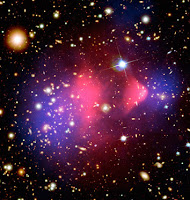Neutrinos are everywhere—trillions pass through your body every second—and these phantom bits of matter travel straight through the Earth without leaving a whisper of evidence. Emanating from the sun (and other nuclear reactions) and moving at near-light speed, neutrinos may hold the key to why antimatter is so rare, how stars explode
as supernovas, and what the Universe was like just seconds after the Big Bang.
Neutrinos are notoriously hard to pin down. But scientists are busy laying traps. Drawing on his new book, Neutrino Hunters: The Thrilling Chase for a Ghostly Particle to Unlock the Secrets of the Universe, astrophysicist Ray Jayawardhana discusses the quest to detect and observe neutrinos, from deep underground laboratories all the way toAntarctica ’s
“IceCube,” the largest neutrino detector in the world.
Neutrinos are notoriously hard to pin down. But scientists are busy laying traps. Drawing on his new book, Neutrino Hunters: The Thrilling Chase for a Ghostly Particle to Unlock the Secrets of the Universe, astrophysicist Ray Jayawardhana discusses the quest to detect and observe neutrinos, from deep underground laboratories all the way to
Professor of astronomy and
Canada Research Chair in Observational Astrophysics at the University of Toronto
Before & After
--Groove to subatomic tunes from our stereophonic supercollider
--Sample our quantum cocktail of the night, the Quinter Quish . . . it will add a particle of warmth to your seasonal celebrations . . .
--Sample our quantum cocktail of the night, the Quinter Quish . . . it will add a particle of warmth to your seasonal celebrations . . .
--Hot off the presses! Snag a signed copy of Dr.
Jayawardhana’s just-released new book, Neutrino
Hunters
--Don’t miss the out-of-this-world
Q&A
This cosmological edition of the Secret Science Club
meets Tuesday, December 10, 8 pm @ the Bell
House, 149 7th St. Brooklyn .
Subway: F or G to 4th Ave.
Doors open at 7:30 pm. Please bring ID: 21+. No
cover. Just bring your smart self!






-001.jpg)





















